On the cusp of a new chapter, the IDM celebrates a dynamic cohort of younger scientists and two decades of excellence in infectious disease research

| 11 December 2023 | STORY JOHN WOODLAND | PHOTO Migal Vanas Photography |
The Institute of Infectious Disease and Molecular Medicine (IDM) was established at the University of Cape Town (UCT) in 2004 as a cross-faculty postgraduate research institute, with a vision to be an international centre of excellence where world-class scientists work together to tackle diseases of major importance in Africa. These are reflected in its ‘big five’ thematic research areas of tuberculosis (TB), HIV/Aids, Covid-19, other viral, bacterial, helminthic and parasitic infections (including antimicrobial resistance), and non-communicable diseases such as cervical cancer and sickle cell disease.
These infections are often intimately intertwined with one another and, analogously, the IDM’s 30-plus research groups are extensively crosslinked and highly collaborative. They are led by the IDM’s 33 Full and 12 Associate Members, augmented by a dozen Affiliate Members from other departments across UCT and a further dozen Adjunct Members from other institutions. Working within the IDM Members’ laboratories and clinical research sites are over 460 scientific, technical and administrative staff, 60 postdoctoral fellows (almost half of whom come from African countries other than South Africa) and 250 postgraduate students.
In 2022, a new category of membership was introduced to support younger researchers through association with the IDM and its community of scholars. The IDM Fellows, of which there are currently 19 and of whom two-thirds are women, represent early- and intermediate-level researchers based at UCT whose work aligns with the vision, mission, and values of the IDM.
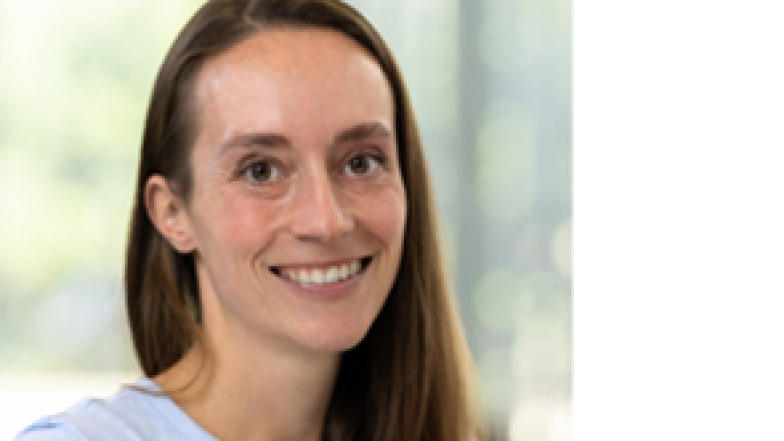
One such Fellow is Dr Anna-Ursula Happel, who received postgraduate training in immunology, microbiology, and virology at the University of Erlangen-Nuremberg in Germany. “Because international exposure and study are essential in medical science training, I elected to spend three months in Professor Jo-Ann Passmore’s laboratory at the IDM during my MSc. I was inspired by the people and HIV-related research in South Africa and returned to South Africa in 2015 to undertake my PhD. Now, I am proudly a permanent resident of South Africa, have a South African family, and am firmly committed to a long-term career here.”
The IDM is globally recognised for its contributions in the HIV/Aids arena. Research efforts at the Institute are focused on prevention, treatment and management of HIV and HIV-associated infections, vaccine development and viral evolution. Dr Happel’s long-term career goal is to contribute actively to the development of locally-implementable intervention strategies and policies to improve maternal and child health in Southern Africa and beyond. “Women and infants affected by HIV, including infants who are HIV-exposed but uninfected, make up a substantial proportion of the population on the African continent. Identifying strategies to improve maternal and infant health in this region will contribute to the United Nations Sustainable Development Goal to ensure healthy lives and promote well-being for all ages.”
Dr Happel singles out the world-class mentoring she has received from IDM Members Professor Passmore and Associate Professor Heather Jaspan, both of whom have encouraged her to nurture the academic and non-academic skills needed to transition from a postgraduate student to an emerging researcher. Dr Happel’s aspiration is to lead the establishment of a centre of excellence in research for maternal and child health at UCT, a unit that will be focused on understanding the underlying mechanisms contributing to poorer maternal and child health in sub-Saharan Africa and the development of unique solutions that address these challenges locally.
Dr Happel’s ambitions exemplify the first of the four missions of the IDM; namely, conducting basic, clinical, and public health research that is leading-edge and relevant to the needs of African people. Another key mission of the IDM is to influence health policy and practice by translating scientific discoveries into applications that are relevant to local communities. One example is the Genital Inflammation Test (GIFT), developed by Professor Passmore and Dr Lindi Masson together with their vibrant team, to improve the health of women in resource-limited settings. GIFT recently entered into field testing to evaluate its potential as a low-cost rapid test to detect vaginal inflammation, a major driver of HIV risk in young women. This is an illustration of the comparative advantage of the IDM as a holistic platform for iterative innovation “from bench to field and back to bench”, as expressed by IDM Member Professor Linda-Gail Bekker, the Deputy Director of the Demond Tutu HIV Centre.
To drive its research efforts at the laboratory-clinic-community interface, the IDM engages a wide range of scientific and clinical disciplines in a strongly collaborative manner, and this reflects the third of the Institute’s missions; namely, to build partnerships with other research centres in South Africa and elsewhere. Current relationships embrace no fewer than 40 South African institutions, 68 African institutions (in 22 African countries) and 356 institutions in 35 other countries across the globe. The IDM also has ties to other institutions through 39 research consortia and 22 industrial partners.
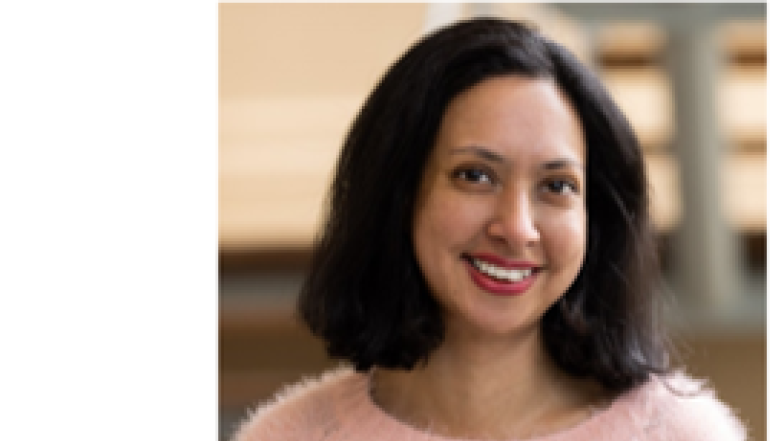
Critical for innovative scientific thinking is a research climate that encourages curiosity, and this is captured by the musings of another IDM Fellow, Dr Melissa-Rose Abrahams: “Like many others in science, my interest stems from a love of ‘figuring things out’. I find the complexity of living organisms fascinating. Also, having a job in which you are discovering and learning new things all the time is awesome!”
Melissa’s work focuses on HIV research; specifically, understanding barriers to HIV cure in African women. “African women are still disproportionately impacted by HIV and most cure studies to date have been conducted in men and outside of Africa. We hope to implement ways to study barriers to cure in our local population and develop strategies that impact where they are most needed.”
“Recently, the IDM supported travel to the United States for my postdoctoral fellow to learn a laboratory assay for characterising HIV persistence on treatment, which we are now implementing locally. Recognising the need for support to develop talent, whether postdoctoral fellows, students, academics, or PASS staff, is important – and supporting technology transfer and capacity building is key.”
Capacity building is indeed a major focus of the Institute and its younger researchers have received hosts of prestigious international fellowships, from those awarded by the European and Developing Countries Clinical Trials Partnership (EDCTP) and the Chan-Zuckerberg Initiative to the Royal Society’s Future Leaders–African Independent Research (FLAIR) programme and the Wellcome Trust’s Investigator Awards.
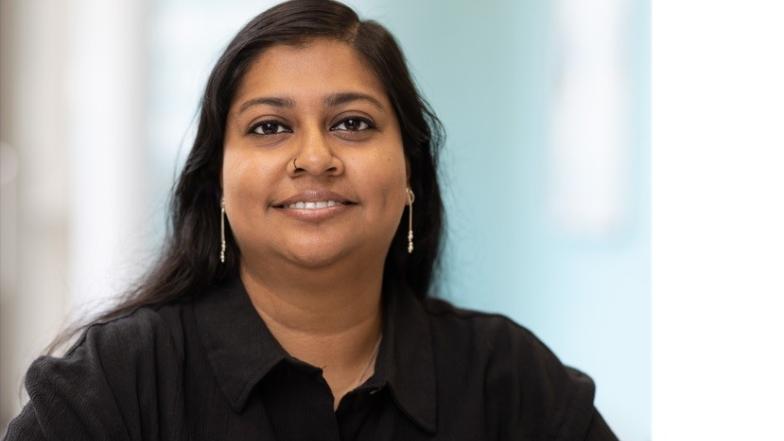
Dr Ruby Bunjun, an IDM and EDCTP Fellow, writes: “I also hold a Carnegie Junior Research Fellowship [JRF] through the IDM, and the support from the IDM for international grants and fellowships has made an enormous difference. In addition to that, there are a plethora of initiatives within the IDM that support early-career researchers.”
Many of these initiatives fall under the umbrella of ‘TEAM’ (Transformation, Education, Advocacy and Mentorship), the IDM’s impressive array of projects that aim to foster an environment with which all staff and students can identify, and which include writing retreats, visiting scientist programmes, opportunities for outreach and public engagement, and the annual postgraduate student publication competition that rewards the best original research and review articles written by postgraduate students.
Dr Bunjun’s research focuses on understanding immunity to SARS-CoV-2 in Africa; specifically, investigating pre-existing immunity to SARS-CoV-2 in adolescents and immune dysfunction during ‘long COVID’. “The great thing about clinical immunology is that it is widely applicable to many different infections. Due to the interdisciplinary nature of the IDM, most of my clinical collaborations have been initiated through the Institute. I am a firm believer of research in Africa, for Africa, and I can decide where to focus my energies to make the most impact to people on our continent.” All of this resonates with the fourth and final mission of the IDM, which is to develop indigenous scientific capacity in the biomedical sciences.
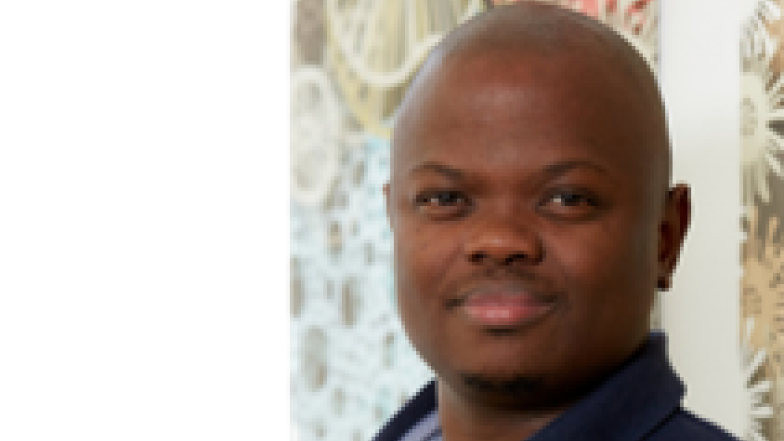
A beneficiary of the IDM’s JRF scheme, which recognises the transformation imperative to retain black South African researchers on a path to independence, is Dr Michael Zulu, who was born in rural KwaZulu-Natal to parents who received only a primary school education. “I was raised by a single mother who worked as a domestic worker to support my four siblings and me. She died the year after I finished high school and I have pretty much had to fend for myself and my younger brother since then.”
“Initially, I wanted to go to medical school and become a doctor to help my community that was devastated by infectious diseases such HIV and TB. Medical doctors were all we knew; we never met scientists with PhDs – they just never existed in my community! My lecturers in the BSc programme at the University of KwaZulu-Natal encouraged me to pursue a research career in biomedical sciences instead. My first year at university was the first time I had access to a computer and the internet.”
After an Honours degree in biological sciences at the University of KwaZulu-Natal, Michael joined the HIV Pathogenesis Programme at that institution on an MSc scholarship. Fast forward through his PhD studies in UCT’s Division of Immunology, his graduation in 2019 and three overseas postdoctoral fellowships, and Dr Zulu has now returned to the IDM. “I am particularly interested in the role of myeloid-lineage cells in the pathogenesis of infectious diseases such HIV, TB and Covid-19 in the regulation of complicated pregnancies and aging and how underlying non-communicable conditions influence the epidemiology of infectious disease.”
“My research is pertinent to the African continent and particularly South Africa. I witnessed first-hand the devastating effects of diseases in my own community. Communities, such as the one in which I grew up, will benefit from my work by having someone with a vested interest in their plight, through representation and inspiration and, most importantly, the development of therapeutics to help fight diseases relevant to our communities.” Dr Zulu stresses the value of the IDM in “bringing together some of the world’s leading scientists and professionals that work together on various research topics that are critical for the development of the African continent and its fight against various diseases”.
TB continues to pose an enormous burden to many lower-to-middle income countries, and South Africa is no exception. A world leader in TB research, the Institute’s programmes span studies in the diagnosis, pathogenesis and management of the disease as well as vaccine development, biomarker discovery and aerobiology.

Another young researcher at the IDM, Dr Ryan Dinkele, did not intend to end up in TB research: “My personal motivation to get into biomedical research was there from the start – to cure HIV!” But it was during his BMedSc(Hons) studies in infectious diseases and immunology at UCT that he became acutely aware of the problem of TB in South Africa and took a detour from his initial trajectory, instead pursuing a PhD in medical microbiology with a focus on TB.
“Although my personal motivation has never changed, my research interests have evolved over time and the manifestation of my desire to help people has shifted to understanding TB transmission. Despite being an ancient disease for which we have had treatment for many years, TB still spreads, infects and kills people at an alarming rate. My research is important because transmission represents an under-researched bottleneck in the natural history of TB, yet it has the potential for profoundly impactful interventions.”
Dr Dinkele explains that, at its core, aerobiology (the study of how microbes move through the air) is an interdisciplinary science and requires teams of individuals with diverse skill sets. “The IDM catalysed the formation of this team and supported its inception, while also providing access to several critical collaborations over the years.” Aerobiology fieldwork is conducted in the community of Masiphumelele on the Cape Peninsula, an informal settlement with a high population density and whose residents suffer high unemployment, increasing mental health risks and an HIV prevalence of 25%.
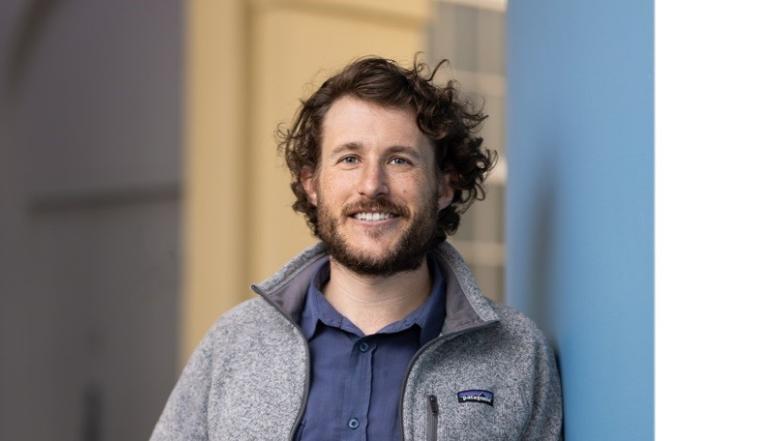
Sites such as Masiphumelele provide key opportunities for researchers at the IDM to engage in meaningful clinical work. Dr Simon Mendelsohn, another IDM Fellow, joined the South African Tuberculosis Vaccine Initiative (SATVI) in 2017 as a clinical trial investigator. Dr Mendelsohn completed his MBChB at UCT before working as a medical doctor in TB-HIV co-endemic high-burden settings, such as the Mpumalanga province, in the early 2010s. He later helped to set up TB programmes in Malawian prisons with Médecins Sans Frontières. He noticed that, in the medical wards, patients presented very late with advanced HIV-associated TB and an associated high mortality rate, and in the prisons of Malawi, a combination of malnutrition and appalling overcrowding resulted in a continuous stream of TB patients.
“Despite access to digital chest radiography and molecular diagnostics, we were only finding patients with symptomatic TB disease, and did not appear to have any effect on stemming TB transmission. This inspired my research towards the development of novel, non-sputum tests for diagnosing Mycobacterium tuberculosis infection and early pre-symptomatic TB disease, and for guiding TB preventive and curative treatment. Improved diagnostic tools for these earlier stages of infection and disease will be essential if we are to curb transmission and achieve TB elimination.”
Dr Mendelsohn studied international health and immunology at Oxford University on a Rhodes Scholarship, and later completed his PhD in clinical science and immunology at UCT. “The IDM is an inspiring place to work with a plethora of world-leading immunology and microbiology TB researchers, with phenomenal facilities and resources to boot. The proximity of our study participant cohorts [in the communities we serve] to our laboratory infrastructure makes our work that much more clinically important and relevant. We are able to design our experiments from participant recruitment through to lab assay. But, most importantly, the IDM fosters an environment of collegiality and collaboration.”
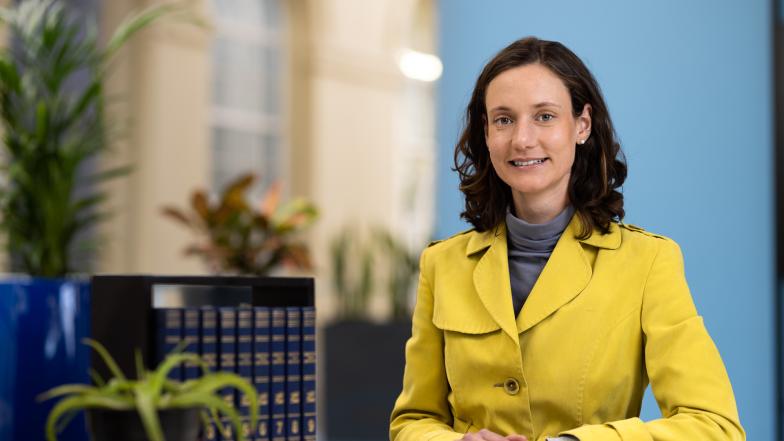
Other research areas championed by the Institute include sexually-transmitted infections (STIs), antimicrobial resistance (AMR) and numerous other viral, parasitic, fungal and helminthic infections. The role of the microbiome, vaccine design and drug discovery are also significant themes. Dr Kathryn Wicht is an IDM Fellow based in the Holistic Drug Discovery and Development (H3D) Centre under IDM Member Professor Kelly Chibale, the main site of which is the Department of Chemistry on UCT’s Upper Campus.
Dr Wicht writes that her journey to become a medicinal chemist and a malaria biologist was unconventional as she stopped studying biology in her early years at high school. “As a result, I developed my skills in biology via my antimalarial drug discovery research, many of them only during my postdoctoral years! This was a steep learning curve but feasible with my background in chemistry from UCT. My biggest periods of personal and professional growth were during my research stints abroad; one at Vanderbilt University for six months during my MSc degree, and one at the Columbia University Medical Centre in New York City for two-and-a-half years as a postdoctoral scientist.”
Dr Wicht is interested in the biological mechanisms by which the most virulent human malaria parasite, Plasmodium falciparum, develops resistance to or is inhibited by antimalarial drugs, as well as the identification of new drug targets or target combinations for the future treatment of malaria. “As an IDM Fellow I am invited to participate in events which allow me to network with other IDM Fellows and Members, as well as opportunities for recognition of my work and that of my students. This makes the possibilities for collaboration and synergistic sharing of facilities much more accessible to me, especially since I am based on a different campus from most of the IDM laboratories.”
Finally, scientists at the IDM also conduct research on non-communicable diseases such as cervical and other prevalent cancers, sickle cell disease, and eye, hearing, cardiovascular and psychiatric disorders – many of which are underpinned by developments in bioinformatics and computational biology. A desire to work on computer software and hardware to understand the complexity of biological systems is what inspired another early-career researcher and IDM Fellow, Dr Musalula Sinkala: “My motivation stems from a deep-seated curiosity and the potential to make meaningful scientific contributions. My research focuses on computational biology, particularly in cancer genomics and artificial intelligence (AI) applications in medicine. I like to think this work is vital for advancing personalised medicine and developing targeted therapies, ultimately benefiting patients and communities.”
The IDM is respected as a leader in bioinformatics and serves as a node for computational biology in Africa; an example is IDM Member Professor Nicky Mulder’s leadership of the pan-African bioinformatics network H3ABioNet that supports the genomics research and capacity-building efforts of the Human Heredity and Health in Africa (H3Africa) consortium. Another important Africa-focused platform is the Africa Microscopy Initiative (AMI), launched at the IDM last year and which has already built an impressive track record of hands-on imaging training. The open-access AMI Imaging Centre houses a fleet of advanced commercial light microscopes tailored for use in the life sciences and marks the start of a new chapter for bioimaging on the African continent.
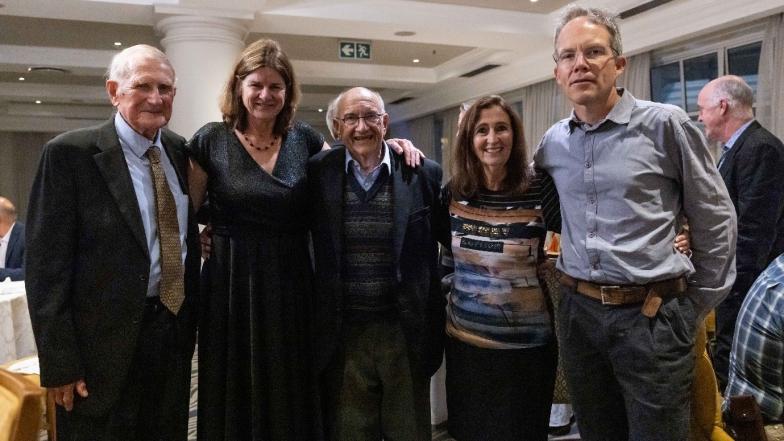
From the left: Em.Prof Wieland Gevers; Prof Lynn Morris; Em.Prof Siamon Gordon; Prof Valerie Mizrahi; Prof Digby Warner
Steering a complex enterprise such as the IDM is overseen by its International Scientific Advisory Committee (ISAC) which plays a key role in advising the IDM’s Governing Board on strategic and scientific matters. But the ‘captain’ of the Institute since 2011, its Director, the indefatigable Professor Valerie Mizrahi, is quick to acknowledge “the resilience, adaptivity and creativity of the IDM community” for the increase in the Institute’s publication outputs and research revenue over the past decade, not to mention the completion of a major building project, in spite of the stream of global, national, provincial and institutional crises which have dominated local and international headlines in recent years.
Professor Mizrahi’s term has also overseen the reinforcement and consolidation of the cross-cutting platforms that support all of the above-mentioned research, from the biosafety level 3 (BSL3) facilities to platforms for flow cytometry and cell sorting, genomics, bioinformatics and data science, mass spectrometry and bioimaging.
Now, as 2023 draws to a close, the leadership of the IDM is set to change as Professor Mizrahi retires from UCT. At a glittering event held at the Cullinan Hotel in Cape Town, Vice-Chancellor (interim) Professor Daya Reddy and senior colleagues paid tribute to Professor Mizrahi along with Professor Siamon Gordon from the University of Oxford who has led the Institute’s ISAC since its inception. Filling Professor Mizrahi’s exceptional and tireless shoes will be Professor Digby Warner, who will serve as the fourth IDM Director from January 2024. Professor Warner is already well respected by the university and global research communities for his work on tuberculosis and mycobacteriology and his commitment to training students and community outreach.
Professor Warner’s leadership will usher in a new chapter for the IDM which now stands as an outstanding model for collaborative research and accounts for one third of UCT’s research income and an impressive component of its research output. These remarkable contributions are driven by hundreds of exceptional scientists from across three of the university’s faculties who, together, continue to elevate the world-class standing of the IDM as a place where diseases of importance to the African continent are tackled for, and by, her people.
